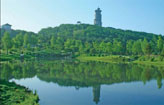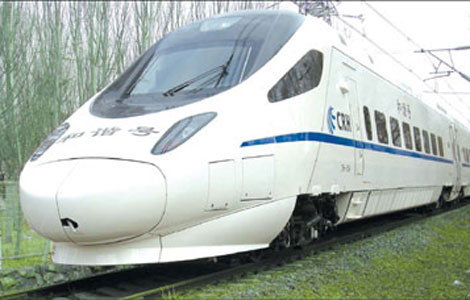Diplomatic and Military Affairs
Carter hopes to meet DPRK's Kims
Updated: 2011-04-26 10:10
(Agencies)
SEOUL - Former US President Jimmy Carter leads a delegation of former state leaders on a three-day visit to Democratic of People's Republic of Korea (DPRK) on Tuesday in a bid to defuse tensions on the divided peninsula.
Here are some questions and answers about their visit:
Who is making the trip to Pyongyang?
Carter, 86, will take a team of statesmen including the former Finnish President, Martti Ahtisaari, the former President of Ireland, Mary Robinson, and ex-Norwegian Prime Minister Gro Brundtland.
They are going under the auspices of The Elders group - a group of eminent global leaders, founded by Nelson Mandela, who work together to support peace-building and human rights. Members of The Elders no longer hold public office and are independent of any government.
Carter is making his third trip to Pyongyang. Last August he went to the DPRK's capital to bring home an American detained for illegally entering the isolated state. His most famous visit came in 1994, when he brokered an agreement which brought the United States and DPRK back from the brink of war over its nuclear plans.
Who will they meet?
Precisely who they will meet is unknown. Carter says he hopes to meet leader Kim Jong-il, and his son Kim Jong-un.
What is the main purpose of the visit?
Their main focus is easing inter-Korean tension, which spiked to the highest level in years in 2010 with the sinking of a Republic of Korea (ROK) warship and the shelling of a ROK island. In between the attacks, DPRK revealed an uranium enrichment programme which opened a second route to making a nuclear bomb along with its plutonium program.
The top priority is convincing DPRK to give up its pursuit of nuclear weapons, and the resumption of dialogue.
DPRK walked out of Six-Party talks in 2009, declaring the process dead after the West imposed a new round of sanctions for its second nuclear test and long-range missile test. Now DPRK wants the talks to resume.
However, Seoul and Washington doubt Pyongyang's sincerity and say they want to see actions and not just words. Last year, DPRK said it would allow nuclear inspectors back into the country, but there has been no further movement on this front.
Ahtisaari, an experienced conflict mediator, says the key to resolving the stand-off is meaningful dialogue between DPRK and ROK.
Will they discuss DPRK's food shortages?
DPRK has this year pleaded for international help to alleviate a food crisis caused by bad weather affecting the winter harvest. Pyongyang's calls for help have been taken up by UN aid agencies which say more than 6 million North Koreans urgently need food aid.
ROK has serious reservations about DPRK's claims, saying its pleas are politically unmotivated and that the food shortages are not much worse than previous years.
Notably, Pyongyang has asked Washington for food aid which was suspended in 2008 over a monitoring row. But the United States says it only resume aid with Seoul's agreement.
Brundtland, former director-general of the World Health Organisation, has voiced concerns about the acute food shortages and expressed a desire to discuss longer-term food security and health issues which are key to economic development.
Are there any other issues?
Carter could also be called upon to help win the release of an American detained in DPRK since last November.
State media said Jun Young Su was arrested last November, and admitted his crime during an investigation. It did not state the nature of the crime. Media reports say Jun was arrested while doing missionary work in the state.
Specials

Models gear up car sales
Beauty helps steer buyers as market accelerates.

Urban breathing space
City park at heart of industrial hub positions itself as top tourism attraction

On a roll
Auto hub Changchun also sets its sight on taking lead in railway sector